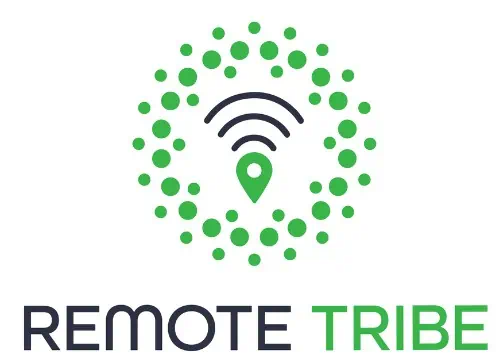A revolution in the workspace has already started a few years ago with the cowork space industry being one of the main engines. The flexibility of the contracts and the community where one can meet like-minded individuals are some of the main drivers of this industry’s expansion. In this article we will explain in detail what coworking is, who is using it and a few tips and tricks to see if it’s the right choice for you or your business.
Emergent Research, a firm that specializes in tracking and forecasting trends that impact small businesses, estimates that nearly one million cowork members and 11,000 coworking spaces exist today
In addition, according to another study by CoworkingResources.org, the number of cowork spaces worldwide is projected to soon cross 20,000 and reach 25,968 by 2022, an increase of 42% from 2019.
What is a Co-working office space?
An unfamiliar concept 10 years ago, a co-working office space is a membership-based environment where the self-employed, entrepreneurs or people with different employer, work in a casual, community atmosphere.
It often refers to sharing office space with other people who are either independently working persons or small businesses and is a very good alternative to conventional or home offices. A coworking space offers office environment for such people where they can work collaboratively in a shared area.
The term coworking was put together in 1999 to describe computer supported collaborative work. And the first coworking centres— the Hat Factory and Citizen Space, both in San Francisco—were established in 2006 as Naiop Research Foundation shows
To clarify, the business models difference between the “old” serviced offices and co-working is that the first collect lease fees whilst the latter operates on a membership model.
However, co-working companies who let space usually provide very similar facilities, equipment and services to those of a typical workplace environment.

Why should you choose a Coworking Office Space?
A cowork office is probably the best solution for those who are not ready to commit to a private office and long term contracts, but still wish to have all of the comforts of a designated workspace, including super fast Internet, a kitchen area, staffed reception, a formal address and other facilities.
A second reason why some businesses might opt in for such spaces would be to provide their staff with equipment, space and facilities that otherwise would prove difficult to afford.
Cowork spaces allow for hot desking or private desks and can be hired by the hour, day or month. Hence this type of shared office space can provide entrepreneurs with an agile working environment, which can change and grow along with the organisation.
A few facts about the people who use Coworking Office Spaces
The Infographic below from hok.com shows a few characteristics of the coworkers who rent these kind of spaces.
Some interesting observations:
- The share of freelancers occupying these spaces has decreased whilst the employees take up 50% of the coworking spaces in the US at least
- The loyalty for the centres is going down year on year
- Cowork spaces make people happier compared to non members
Is a collaborative workspace type right for you?
Depending on the size of your business or your lifestyle as a freelancer, the co-working space might be the right option for you if:
- You don’t want to commit to a long term contract(hire it by the hour, day or month.
- You are on the go often and want to access a global network of offices
- You thrive in a creative environment with good vibe
- You don’t want to setup a permanent base and invest in equipment
- Your business might scale, but you don’t know when that is going to happen
- Manage a big company and you have periods when your must hire extra staff, but don’t have office space.
Also before subscribing to a collaborative workspace, you should first answer these questions for yourself or together with your co-founders. This will help you make sure the space you will be joining is the best fit for you.
- Do you need shared office space only or would you like access to meeting rooms too?
- What type of access do you want for yourself or employees?(walk-in, monthly subscription,etc)
- How important are the facilities like food services, printing,etc and do they offer them?
- How secure is the space?
- Which type of coworking community do you want to join? e.g. Incubator for startup or for making loose connections
What do you get with a shared workspace?
You can expect some or all the service listed below from the coworking space operators:
- Shared space to work (hot desks or private desks)
- 24/7 access to workplace (in some cases, make sure you check their schedule before committing; a lot of them shut down at 5 pm)
- Conference rooms that can be reserved or rented on need basis
- High speed internet
- Printing, copying, faxing and/or scanning facilities
- Showers and parking
- Gym and fitness rooms
- Coworking cafes and lunch bars
- Videoconferencing studios
- Common kitchens, restrooms and/or lounges
If you are looking to rent a coworking office space but don’t have that remote job yet, check out our guide with best remote companies to work for in 2020
What is the difference between shared workspace and cowork space?
The two terms are synonyms in the sense that they both describe a collaborative workplace where people share the environment.
Nevertheless, the are two types of shared spaces available with providers like WeWork, Regus and Spaces, which are probably the largest office networks in the world.
1. Unreserved co-working space also known as “hot-desking”
This is a space whenever you need on a first come, first served basis. A hot desk is your on-demand workspace. Simply choose any open seat in the coworking areas in your location to begin your working day.
If you are interested in the pricing of this type of space, they vary depending on the location, city and country. For example, in Central London, Wework charges £450/month in central London whilst with Regus you’ll have to pop £360/month. Be careful, the prices are very different depending on the factors above and number of days booked so make sure you check several options before booking.
2. Reserved co-working (permanent or dedicated desk)
With this type of cowork space you own a dedicated desk, with all the benefits of a full-time office in a shared office space.
They are ideal for freelancers, small business owners and remote workers – in essence, anyone in need of a reserved, permanent space where they can keep their belongings and that they can return to each day. Usually, these dedicated desks include a comfy chair and a lockable filing cabinet.
A dedicated(permanent) desk will give you access to all the perks that come with it like events, networking as well as the printing facilities and more.
Challenges of Coworking
1. Lower productivity
Unfortunately coworking spaces tend to be crowded, noisy, and distracting. While these can be ideal environments for brainstorming and networking, they are rarely good places to produce good quality work and focus intensively.
2. Lack of private space
Another disadvantage of co-working is a lack of privacy. For example, if you work in an open public space there is almost no privacy which can leave you vulnerable if your business competitors are occupying the same coworking space. Imagine you are talking business strategy or quarterly results and some of your competitors are around.That can be very dangerous for your business.
You may also find it hard to find a private place when on the phone calls with clients or keep company information protected in this shared office spaces.
3. Tech headaches
Maybe you will encounter technical issues with the equipment (projector,speakers,etc) and there is no one around to help. Or perhaps the internet is not as fast as they promised initially or doesn’t work very well.
4. Limited or poor maintenance
This means that you might not have that awesome ergonomic chair or desk because their standards are lower than what you thought. Also, order and cleaning might be an issue and it could prove it is below standard impacting your mood and creativity.
All this might pun a negative stamp on your productivity in the work you do as a freelancer or within your team.
5. Cost (in)efficiencies
Coworking membership fees add up and there might be a point where you must scale and this system becomes financially inefficient for you. Or the value for money you get will make you change your mind. Therefore you might be better off then signing a longer contract with a traditional landlord.
Advantages of co-working
1. Location(s)
Location is probably the most important factor when choosing the office space either for you or the company. You should choose a co-working place that is within easy reach from your home or it’s easy to get to by all your employees.
I suggest you check if the space provider has more offices in your city so you make it easier for the employees who live in different zones access other offices from the network.
Also, before signing a commitment with an office company, look for facilities like as restaurants, availability of parking, shops, and public transit that make it easy to access and entertain clients.
2. Community and environment
Are you looking for a more serious, professional environment for your office where you can impress your clients? Or do you think a more creative co-working space(like WeWork or HuckleTree) where you can meet potential collaborators from your niche?
How often does the coworking hub organise events for the members and what kind of events do they create? Do you think your team will benefit from them?
As an example, we believe WeWork is
When it comes to environment, that’s also of high importance. Ask yourself if you want a shared open space or a private office because you need some quiet time with your teams and clients.
3. Budgeting
Make sure that the space you pick offers flexibility both short and long term if you decide to scale or just leave. For example, if you are going to grow the team within a few months, you need to take this into account and check if they can accommodate you.
Write down a budget and see afterwards what options you have left. Some of the coworking spaces can be quite expensive. Also, make sure you have the option to exit the contract in good terms for you without taking big financial hits.
TIP: Most of the co-working spaces offer a 1 day free trial for their offices so you can even try them out before you sign anything long term.
4. Contract length
How long do you plan on staying at your chosen co-working space? Are you planning on expanding nationally or globally? Does the co-working space you choose offer access to a network of locations? These are important elements that you should have the answer to prior to picking a space.
5. Amenities
Some companies offer more amenities than others. Checkout if they offer 24/7 access or biking parking in the basement. Some companies offer much more than the free coffee and biscuits. Anything extra is welcome and will make your employees happier
Top 10 city hubs for shared office space in the world
Luxembourg, Singapore and Ireland are in the top three, with Luxembourg coming in first at 8.5 new spaces every year for every 1,000,000 inhabitants.
In Ireland and Singapore,which are both small countries with a population of about 5 million, coworking has definitely made a big impact in these regions.
| [wptb id=6015] |
Are you looking for a coworking space somewhere in the world? Then maybe you want to check out Coworker,a shared office marketplace which contains 14,000 spaces in 12 locations around the globe.
Have you ever used a shared workspace? Do you think they are the future of work? Leave a comment below.











